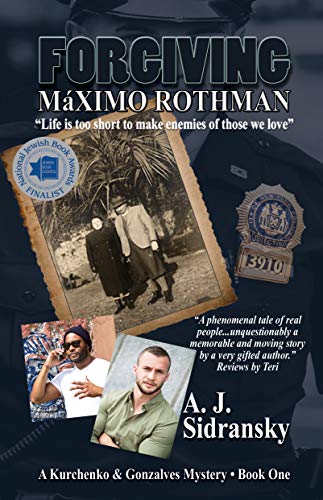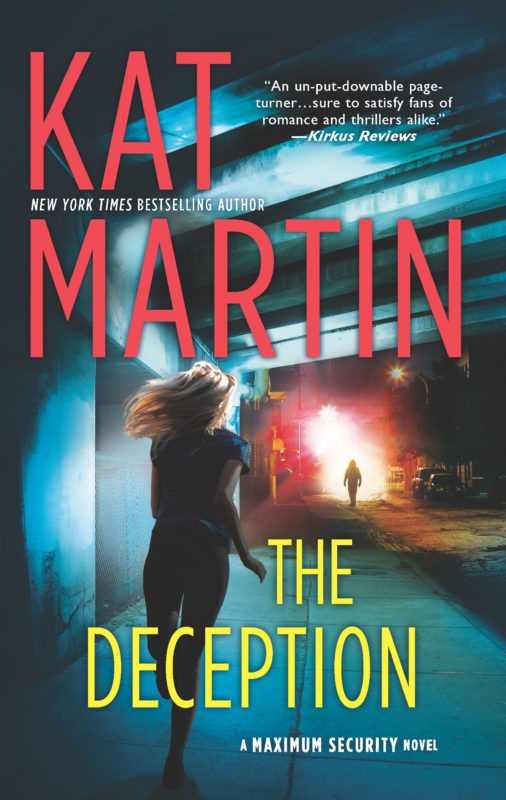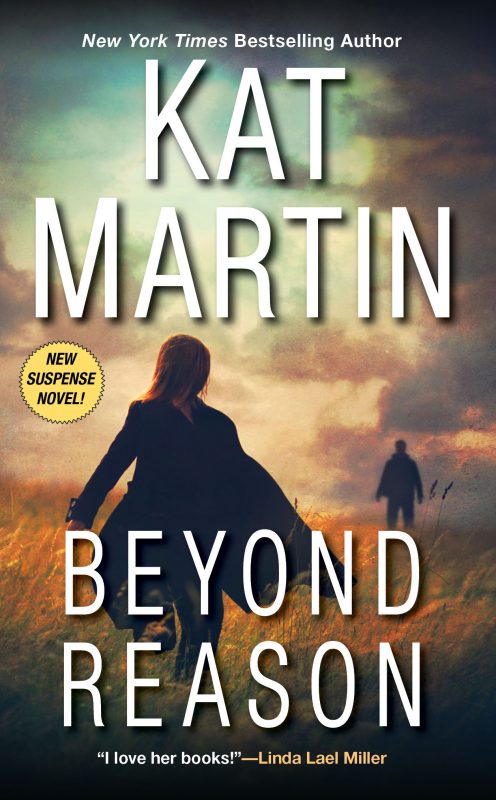HOLY STRIKE DUTY, BATMAN by Bobbie Cimo
November 13, 2009 by A Slice of Orange in category Eye on Hollywood by Bobbie Cimo tagged as Bobbie Cimo, Eye on HollywoodToday, most of the original stages at CBS-TV City are either being used for game shows or soap operas. But back in the day, along with soap operas and game shows, they were also used for sitcoms and weekly variety shows. Television City was so busy, it was practically going 24/7. In order to be able to get ready for the next day’s tapings , we would have to schedule a “turn around crew†consisting of stagehands, to come in during the middle of the night, to strike one set and set up a new one.
Almost every job dealing with production is attached to a union, whether it be a make-up artist, hairdresser, lighting director, stagehand, cameraman, or truck driver–all the way up to the director, actor, and even to the actor’s stand-in. Without any of these people, production would come to a virtual standstill or at the very least, making it difficult to complete. And when there’s no production, there’s no revenue for anyone.
Negotiations of contracts usually start months in advance between union leaders and Management–both wanting to get the best and fairest deal for their side. But no matter how hard each team tries, sometimes a mutual agreement can’t be reached. When this happens, a strike is called and all union personnel are ordered to walk off their jobs immediately, which leaves only management as their replacements, until a settlement can be reached.
When I say “managementâ€, that means all employees who aren’t part of a union. And just like the union members have to abide by their leaders who ask them to leave their jobs, management is expected to fill in for them. It’s called working strike duty. Training doesn’t usually start until we learn that negotiations are going poorly. And then we start cramming, like college students for a test. We’re taught either by professional strike training teams or management, who use to be union people themselves.
Have you ever heard someone say, anybody can write a book? Oh, yeah, just let them try it.
The first union job I trained for was as a boom operator. For all of you who aren’t familiar with the term, a boom operator is the person who follows the actors around the studio with a microphone on a pole high above the talent’s head. Today, outside of the soap operas, booms aren’t used very often. They’ve been replaced with microphones hidden in the actors’ clothes. Being a boom operator sounds easy, right? Wrong!
After hoisting yourself up on a three foot high platform, the first thing you’re taught is how to put the microphone together on a long rod, that is swung over the actor’s head. Putting the thing together isn’t all that easy, and neither is operating the boom itself. You can swing it in different directions and use a reel to move it in and out, sort of like an upside down fishing rod. Not only is it heavy, but it’s hard on your arms, shoulders and neck. Your main goal is to have the mic just the right place above the actor’s head to pick up his voice, but out of camera shot. This would be simple if the actors just stood in one spot. Unfortunately they don’t. One moment they can be sitting, the next they’re standing or walking around the set. My greatest fear was I was going to hit someone in the head. More than a few times, my greatest fear almost came true…especially when I would relax for a moment and the boom would come crashing forward.
Besides worrying about your mic not showing on camera–picking up a balanced sound and concentrating on not conking anyone on the head, you have to be careful not to cast any shadows that can be seen in the shot. While I’m doing my balancing act in the air, below me is someone pushing and pulling me around on my Ivory Tower, making sure I get to where I need to be. Can anyone say, Dramanine, please?
They once relieved me from my boom duties and gave me a shot at being a camera person. When they did, I thought I’d found my niche. But I was wrong.
During taping of a show, they used what was called the multi-camera technique (something that started as far back as the “I Love Lucy†days). This is when they have multi cameras on the floor and the director calls the shots from the booth into a little earpiece inside the cameraman‘s ear. “And close up from camera threeâ€. We did have rehearsals, but besides practicing your moves, and learning how to operate the side handles for those zooming in and wide shots, you had to know how to run backwards and from side to side–all while pushing your camera around, and avoid colliding with someone else’s. This is all done while looking through a lens. The pressure was enormous and I was glad to give up my post. Actually, I don’t think they ever asked me to come back to it.
Usually, professional stand-ins were hired for us to practice our skills on, but then there were those few times when they would ask us to pick up a script and read the lines for our co-workers to practice on. I, personally couldn’t act my way out of paper bag, so I found the whole thing rather embarrassing. The good thing was no “Soap†actress ever felt threatened about losing her job because of newly discovered talent.
A few years later, once again, I was called in for training. This time, I was placed in the audio booth to do sound effects. I liked this job a lot better, and my timing for ringing the doorbell, slamming a door and tooting a car’s horn were ingenious. Unfortunately, there was more to the job than just doing live sound effects. They also wanted me to perform the sweetening, which is adding sounds after the show had been taped. The audio board had hundreds of gadgets on it…rotary knobs, faders, power mixers and switches. So it wasn’t just a matter of pushing levers or turning knobs. Once the sound effects were used the first time around, you had to learn to cue it up by looping it on the machine so it could be repeated again for the next time. Everything was in the timing. This is not a job for a technically challenged person as myself. But I did get good reviews. But personally I wasn’t comfortable in doing it and was thrilled when there was no strike called for that year, either.
Years later, when another threat of a strike came up, I was assigned as a video tape operator. This called for late night training. I think of all the jobs this was the easiest, but by far the most boring.
The tape went from camera into film can and then transferred onto a video tape machine, where it could be shown over the network and into the viewers’ homes. Threading a video machine is like threading a sewing machine. The most important part of the process is remembering which thingamajig the tape is suppose to go around. But once that’s completed, the rest is simple. You just have to babysit the tape machine to make sure everything runs smoothly–and make sure you don’t nod off while doing it. We were also given lessons on how to edit the tape, by cutting and splicing it together.
Because I’m a night person, I was excited to find out that my training would be starting at 11PM. But the novelty soon wore off after a few days. Working all day and then returning again at night was not my thing. I realized my best night work was at home working on my book and in pajamas.
As luck would have it, (as much for me, as for “Productionâ€) I never had to work strike duty for real. And I never lost any of my union friends over it. They knew, like them, I was following orders.
And the next time you look at somebody’s job and think you can do it just as good as they can, I would say to you, “Not so fast, my “Cape Crusader†friend, it’s probably harder than you think it is….POW!, WHAM! & BLAM!
As Time Goes By…we must never forget by Jina Bacarr
November 11, 2009 by A Slice of Orange in category Archives tagged as Casablanca, Confessions of a Podcast Goddess, Veterans Day, World War IIThere’s a scene in the classic film Casablanca when Résistance fighter Victor Laszlo (Paul Henreid) tells the musicians in Rick’s Cafe to play La Marseillaise after Major Strasser leds a group of Nazi soldiers in a rendition of “Die Wacht am Rhein” (Watch on the Rhine), a German nationalist song. It’s a powerful message about the stirring emotions music brings out in all of us–especially when freedom is at stake.
Interesting, but a similar incident happened two days after the Germans marched into Paris on June 14, 1940 in a restaurant in Montmartre called La Crémaillère. (Who can forget Rick’s words to Ilsa in Casablanca when he says, “The Germans wore gray, you wore blue…”)
An Englishman ordered a drink at the bar in this classic restaurant built in the early 1900s for himself and his companion, an American lady. She noticed a piano in the corner and started playing God Save the King to bolster the courage of her British friend.
The Nazis immediately told her it was verboten.
“America is not at war with Germany,” she said calmly and continued playing. The Germans were perplexed and angry until she explained to them that she was playing an American song called “My Country ’tis of Thee.”
Same tune, different words, but the power of playing the song in defiance remains. According to eyewitness reports, the Germans apologized, bowed, clicked their heels and left.
Let us not forget on this Veterans’ Day all the brave soldiers, both military and civilian, who have dared to stand up against tyranny.
As the heroine in my World War II novel, Cleopatra’s Perfume, Lady Eve Marlowe says, “I survived, dear reader, angry and filled with the passion to save lives and end this terrible war. The obsession that was never far from my mind comes sharply into focus. Now I will use that passion against them. The Nazis. The urge to be part of the machine to defeat the enemy is irresistible to me.”
Jina Bacarr is also the author of The Blonde Geisha , Naughty Paris, Tokyo Rendezvous, a Spice Brief, and Spies, Lies & Naked Thighs
February 2010: meet The Blonde Samurai
“She embraced the way of the warrior. Two swords. Two loves.â€
What’s in a job? by Abby Gaines
November 9, 2009 by A Slice of Orange in category Writing tagged as Abby GainesOne of the fun things about writing novels is the different careers and jobs I get to explore as an author, all in the interest of research. A well-chosen job adds affects kinds of aspects of a character—the pressures they face, their likes and dislikes, their ambitions, their education, their skills…. Often I choose a job for my character seemingly out of thin air, then discover that choice says something vital about my character.
The Plot Thickens by Linda O. Johnston
November 6, 2009 by Linda O. Johnston in category Pets, Romance & Lots of Suspense by Linda O. Johnston tagged as Berkley Prime Crime, Kendra Ballantyne, Linda O. Johnston, Pet-Sitter Mysteries, Silhouette NocturneIn my September blog, I asked people for ideas of what they would like me to address in my posts on A Slice of Orange. My apologies, but I didn’t use those ideas last month because I’d just attended the West Hollywood Book Fair and was jazzed about it, so that was what I talked about in my post.
But now, here’s a topic that one of the commenters mentioned in September: plotting. Holly wrote: “My biggest issue is keeping the plot/subplots simple and not too many. It is like ideas pop into my little head and I add them instead of filtering. How do you filter through them to keep the storyline flowing?â€
That can be a problem, Holly. I’ve found it particularly affects me when I’m writing some of my Kendra Ballantyne, Pet-Sitter mysteries. Kendra is my alter ego, and she keeps throwing ideas into my mind about what’s happening in her life while I’m writing about her.
What I generally do, though, is tell her that I need to stick to the synopsis I always create before I start writing one of her stories. I don’t do detailed outlines or scene lists any longer, but I have found that if I go off on a tangent that isn’t in my original synopsis I generally have to remove it.
That’s not to say you can’t save it for another book. I certainly do! That’s such a great thing about computers. I always keep lists of ideas in the same folders as the stories I’m working on. Then, when it’s time to plot the next story and create its synopsis, I generally can pick and choose from ideas I’ve already jotted down.
Of course, everyone writes differently. Not everyone can work with a synopsis or outline. There are a lot of seat-of-pantsers out there, too–and I’m sure it’s more difficult for them to ignore new ideas as they crop up.
Another caveat here. (Yes, I’m also a lawyer, so I use legalese at times!) Even if you are someone who writes a synopsis, outline or scene list first, if something comes to you that you haven’t already included and it’s a real doozy that you think readers will love, you don’t always have to save it for the next book. But think it through before you run with it. It may make what you’re doing a whole lot harder to finish–especially if it’s also interrupted by other ideas!
So–was this helpful? Any other things you’d like for me to address in the future?
Linda O. Johnston
http://www.lindaojohnston.com/
http://www.killerhobbies.blogspot.com/
Linda O. Johnston is the author of 16 romance novels and several novellas, including a Nocturne Bites that is also in a current print anthology AWAKENING THE BEAST, with more Nocturnes upcoming. She also writes the Kendra Ballantyne, Pet-Sitter mystery series from Berkley Prime Crime and is also working on the spin-off Pet Rescue series.
Happy Halloween!
October 31, 2009 by A Slice of Orange in category Archives tagged as Halloween, storyStrolling through the neighborhood, the decorations were impressive and I wanted to share them with you. As I looked at the houses, I realized the focus was on setting the tone, first impressions–just like the opening of a story.
While some of these entryways may over promise in terms of delivering something similar inside, don’t you just want to check it out?
Here this real estate agent is clearly calling attention to the key element they want you to focus on (Yes, the agent’s name really is Bubes. Perhaps it’s pronounced in a special way):
Here a daunting uphill climb is accompanied by ghosts and an organist, luring you to the top…
It’s all about the entry way:
Step right in…
Where are you going, and what makes you want to go there?
This was the “piece of resistance” (never have been able to understand how that phrase works in French–shouldn’t it be irresistible?). Quite an entrance, isn’t it? I like the skeletal remains on the pathway. The witch is almost too scary…
And here there’s room for some added support (don’t they look like a ghostly version of Rodin’s The Burghers of Calais?), directing you too that compelling opening. Nice, eh?
If your story were a house, would you want to go inside? What does the entry way look like? Think about it….
Isabel Swift
Affiliate Links
A Slice of Orange is an affiliate with some of the booksellers listed on this website, including Barnes & Nobel, Books A Million, iBooks, Kobo, and Smashwords. This means A Slice of Orange may earn a small advertising fee from sales made through the links used on this website. There are reminders of these affiliate links on the pages for individual books.
Search A Slice of Orange
Find a Column
Archives
Featured Books
A BIRD WILL SOAR
FORGIVING MAXIMO ROTHMAN
Life is too short to make enemies of those we love.
More info →WINTER WISHES: A REGENCY HOLIDAY ROMANCE ANTHOLOGY
Stories that will sweep you away . . .
More info →THE DECEPTION
When missing turns to murdered, one woman's search for answers will take her to a place she never wanted to go…
More info →BEYOND REASON
She’s determined to be successful—no matter who tries to stop her.
More info →Newsletter
Contributing Authors
Search A Slice of Orange
Find a Column
Archives
Authors in the Bookstore
- A. E. Decker
- A. J. Scudiere
- A.J. Sidransky
- Abby Collette
- Alanna Lucus
- Albert Marrin
- Alice Duncan
- Alina K. Field
- Alison Green Myers
- Andi Lawrencovna
- Andrew C Raiford
- Angela Pryce
- Aviva Vaughn
- Barbara Ankrum
- Bethlehem Writers Group, LLC
- Carol L. Wright
- Celeste Barclay
- Christina Alexandra
- Christopher D. Ochs
- Claire Davon
- Claire Naden
- Courtnee Turner Hoyle
- Courtney Annicchiarico
- D. Lieber
- Daniel V. Meier Jr.
- Debra Dixon
- Debra H. Goldstein
- Debra Holland
- Dee Ann Palmer
- Denise M. Colby
- Diane Benefiel
- Diane Sismour
- Dianna Sinovic
- DT Krippene
- E.B. Dawson
- Emilie Dallaire
- Emily Brightwell
- Emily PW Murphy
- Fae Rowen
- Faith L. Justice
- Frances Amati
- Geralyn Corcillo
- Glynnis Campbell
- Greg Jolley
- H. O. Charles
- Jaclyn Roché
- Jacqueline Diamond
- Janet Lynn and Will Zeilinger
- Jeff Baird
- Jenna Barwin
- Jenne Kern
- Jennifer D. Bokal
- Jennifer Lyon
- Jerome W. McFadden
- Jill Piscitello
- Jina Bacarr
- Jo A. Hiestand
- Jodi Bogert
- Jolina Petersheim
- Jonathan Maberry
- Joy Allyson
- Judy Duarte
- Justin Murphy
- Justine Davis
- Kat Martin
- Kidd Wadsworth
- Kitty Bucholtz
- Kristy Tate
- Larry Deibert
- Larry Hamilton
- Laura Drake
- Laurie Stevens
- Leslie Knowles
- Li-Ying Lundquist
- Linda Carroll-Bradd
- Linda Lappin
- Linda McLaughlin
- Linda O. Johnston
- Lisa Preston
- Lolo Paige
- Loran Holt
- Lyssa Kay Adams
- Madeline Ash
- Margarita Engle
- Marguerite Quantaine
- Marianne H. Donley
- Mary Castillo
- Maureen Klovers
- Megan Haskell
- Melanie Waterbury
- Melisa Rivero
- Melissa Chambers
- Melodie Winawer
- Meriam Wilhelm
- Mikel J. Wilson
- Mindy Neff
- Monica McCabe
- Nancy Brashear
- Neetu Malik
- Nikki Prince
- Once Upon Anthologies
- Paula Gail Benson
- Penny Reid
- Peter Barbour
- Priscilla Oliveras
- R. H. Kohno
- Rachel Hailey
- Ralph Hieb
- Ramcy Diek
- Ransom Stephens
- Rebecca Forster
- Renae Wrich
- Roxy Matthews
- Ryder Hunte Clancy
- Sally Paradysz
- Sheila Colón-Bagley
- Simone de Muñoz
- Sophie Barnes
- Susan Squires
- T. D. Fox
- Tara C. Allred
- Tara Lain
- Tari Lynn Jewett
- Terri Osburn
- Tracy Reed
- Vera Jane Cook
- Vicki Crum
- Writing Something Romantic
Affiliate Links
A Slice of Orange is an affiliate with some of the booksellers listed on this website, including Barnes & Nobel, Books A Million, iBooks, Kobo, and Smashwords. This means A Slice of Orange may earn a small advertising fee from sales made through the links used on this website. There are reminders of these affiliate links on the pages for individual books.

















































